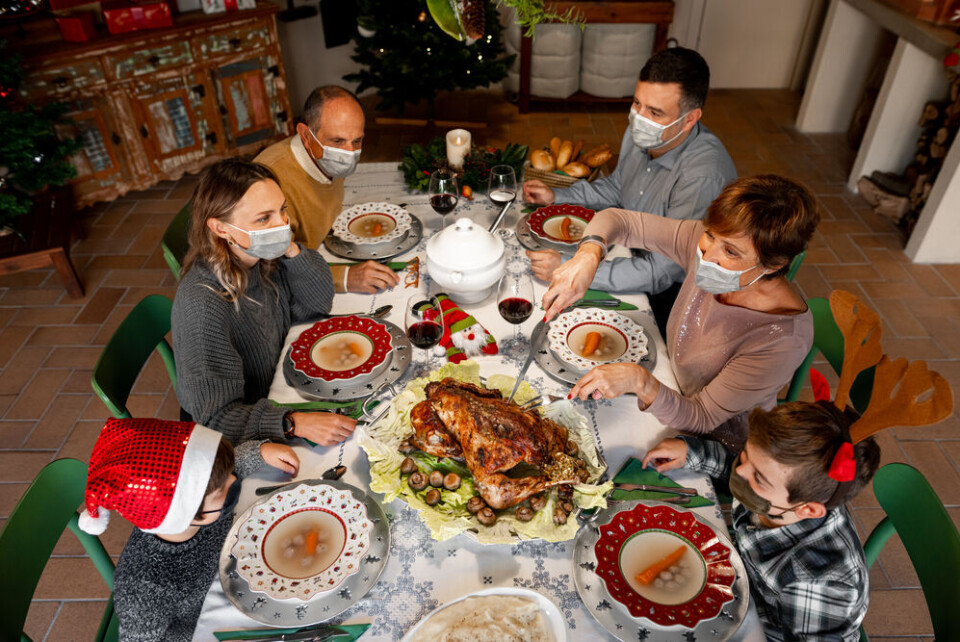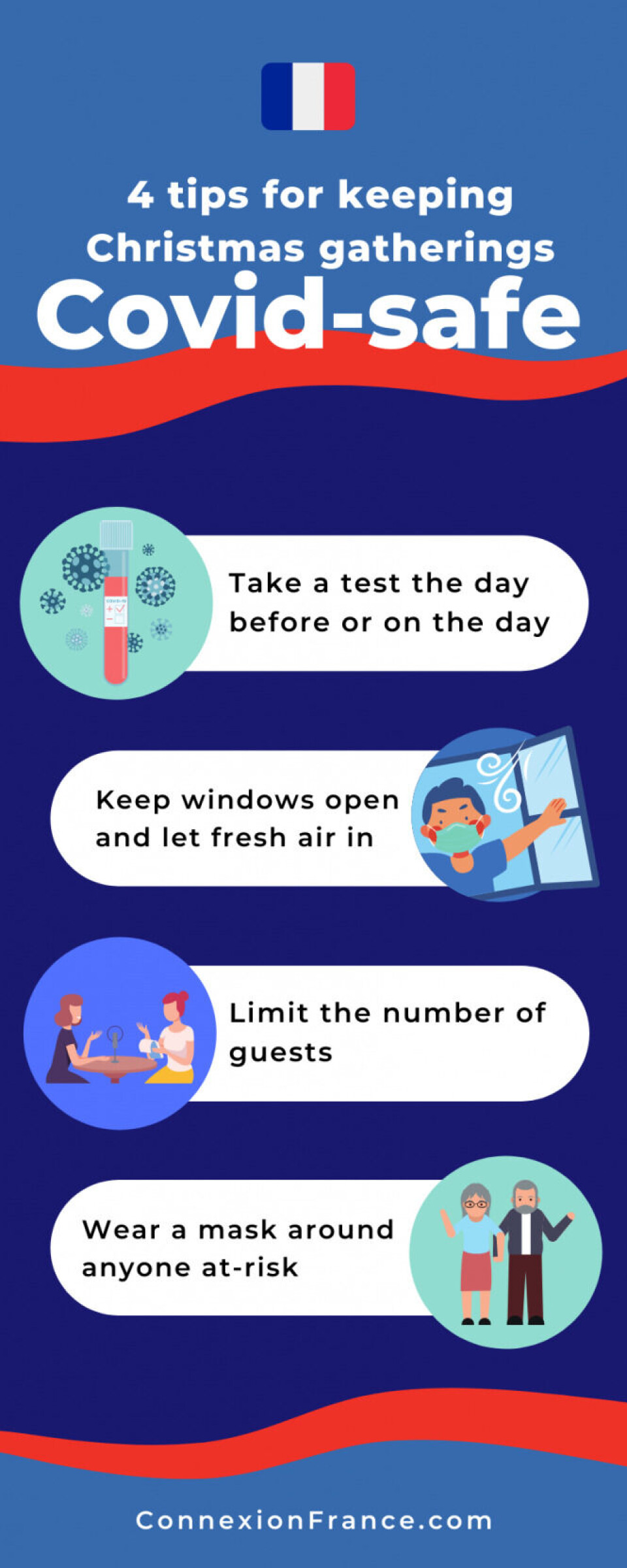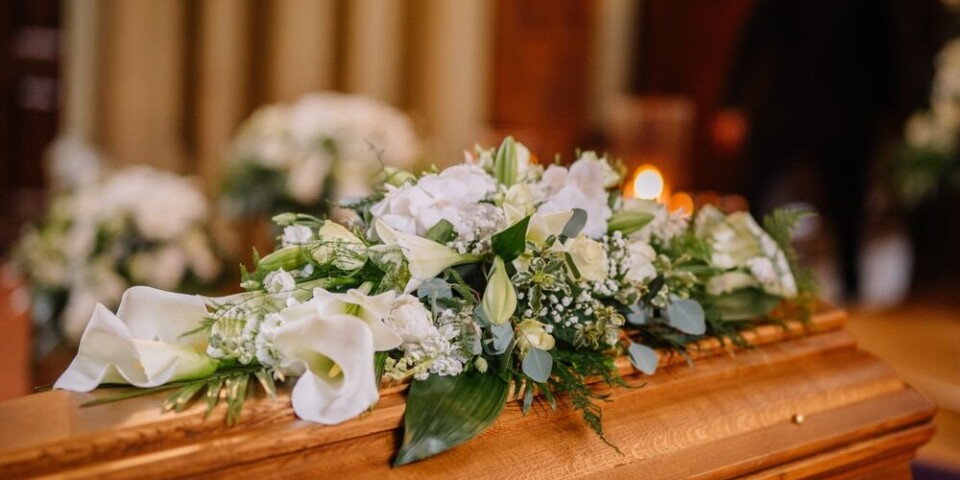-
Safety and local taxes are top concerns before French municipal elections
Residents also cite cleanliness and environment as major factors
-
‘Reckless’: French winemakers react to Trump’s new threat of 200% tariffs
The US president made the comment after hearing that President Macron did not intend to join his Board of Peace initiative
-
French census criticised for question on parental birthplace
Groups believe responses could be used to fuel discriminatory policies
Covid and Christmas: French government's four tips for staying safe
Official advice for end-of-the-year events to limit the spread of Covid-19

Covid-19 might be an uninvited guest at this year’s festivities but its presence will be felt for many in France.
There are currently no obligatory restrictions on movement or the number of people allowed to gather together for end-of-year celebrations.
However, with hospitals across the country “close to paralysis” due to largely unvaccinated patients, according to one leading emergency doctor, the French government and health authorities are urging the public to take extra precautions.
We summarise the key advice below
1. Take a test the day before or on the day of the event
Vaccinated or not, the government recommends that you take a PCR or antigen test before attending any Christmas gatherings. Self-testing is recommended and in the instance of a positive result, you should self-isolate for ten days and alert any contact cases.
Health authorities also advise to test in the run-up to the new year and to continue testing for five days after.
2. Air the room at regular intervals
Despite the cold temperatures, it is still recommended to air rooms once an hour, for a minimum of 10 minutes.
"Both Delta and Omicron are transmitted by aerosol particles, '' says Anne-Laure Crémieux, infectologist at the Saint-Louis Hospital (AP-HP). Regularly opening the window will help reduce airborne transmission."
3. Limit the number of guests
This is the least popular recommendation, but the most effective according to official advisors from the Conseil scientifique. In the absence of lockdown or curfew, as was the case in 2020, the organisation recommends reducing the number of people at gatherings.
While no number has been set, Prime Minister Jean Castex said the public should "rely on a principle of common sense: the fewer the people, the less the risk."
4. Pay special attention to the most vulnerable
The Conseil scientifique also recommends making sure that both the oldest guests and the youngest guests have received their booster vaccination. If some people are not fully vaccinated, it is advised to wear a mask in the presence of more vulnerable guests.
In the latest advice published December 17, the Conseil scientifique also recommends people avoid seeing those over 65 years old during the first week of January in order to avoid "a post-New Year's Day surge in transmissions".

Related stories
Health advisors call for New Year Covid restrictions in France
Efforts stepped up to fight fake French health passes
Covid: The 22 essential reasons for travel between UK and France
























